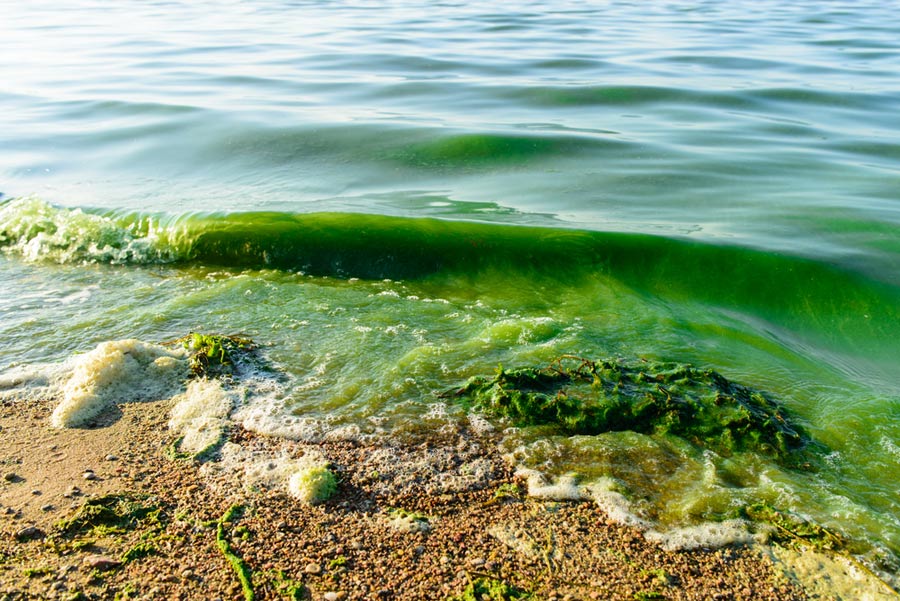In the face of mounting environmental challenges, the concept of “Oceanic Green” has garnered significant attention as a beacon of hope for sustainable solutions. This term broadly refers to marine algae and other aquatic plants that play a pivotal role in maintaining ecological balance and supporting marine life. As we delve into 2024, understanding the ecological impact of marine algae and exploring the emerging trends and ideas surrounding them is more critical than ever. Wonders of Oceanic Green
The Ecological Importance of Marine Algae
Marine algae, including various types of seaweed and phytoplankton, form the foundation of oceanic ecosystems. These organisms are vital for several reasons:
Primary Production: Marine algae are primary producers, converting sunlight into energy through photosynthesis. They form the base of the marine food web, supporting a wide array of marine life, from tiny zooplankton to large marine mammals.
Oxygen Generation: Phytoplankton, a type of microscopic marine algae, are responsible for producing approximately 50% of the Earth’s oxygen. This makes them essential not only for marine life but also for terrestrial life, including humans.
Carbon Sequestration: Marine algae play a crucial role in the global carbon cycle. Through photosynthesis, they absorb carbon dioxide from the atmosphere and store it, helping to mitigate the impacts of climate change.
Habitat Formation: Larger algae, such as kelp, create complex underwater forests that provide habitat and shelter for numerous marine species. These habitats are critical for biodiversity and the health of marine ecosystems.
Emerging Trends and Ideas for 2024
Algae-Based Biofuels
The quest for renewable energy sources has led to significant advancements in algae-based biofuels. Marine algae are being cultivate and harvest for their potential to produce biofuels, offering a sustainable alternative to fossil fuels. This trend is expecte to gain momentum in 2024, with more research focused on improving the efficiency and scalability of algae biofuel production.
Nutrient-Rich Food Sources
Marine algae are rich in essential nutrients, making them a valuable food source for humans. As the global population continues to grow, the demand for sustainable and nutritious food options is increasing. In 2024, we can expect to see an expansion in the use of algae in food products, ranging from dietary supplements to innovative culinary dishes.
Biodegradable Plastics
The problem of plastic pollution in the oceans has prompted researchers to develop biodegradable plastics derived from marine algae. These eco-friendly plastics break down more quickly than traditional plastics, reducing the environmental impact. The year 2024 will likely witness further advancements in this field, with potential commercialization of algae-based biodegradable plastics.
Algae in Cosmetics and Pharmaceuticals
The cosmetic and pharmaceutical industries are increasingly turning to marine algae for their beneficial properties. Algae extracts are use in skincare products for their anti-aging and moisturizing effects. Additionally, compounds derive from algae are being investigate for their potential in treating various medical conditions. This trend is expecte to continue growing in 2024, with new algae-based products entering the market.
Carbon Capture and Storage
Innovative approaches to carbon capture and storage (CCS) are incorporating marine algae. Algae can be use to capture carbon dioxide from industrial emissions, converting it into biomass that can be store or utilize in other applications. As CCS technologies advance, algae’s role in reducing greenhouse gas emissions will become increasingly prominent in 2024.
Conclusion
As we navigate the environmental challenges of the 21st century, the wonders of “Oceanic Green” offer promising solutions. Marine algae’s ecological impact is profound, and the emerging trends and ideas for 2024 highlight their potential in various sectors. From renewable energy and sustainable food sources to biodegradable plastics and medical advancements, marine algae are set to play a crucial role in shaping a more sustainable future. Understanding and harnessing the power of “Oceanic Green” will be essential for achieving ecological balance and addressing global environmental issues.

